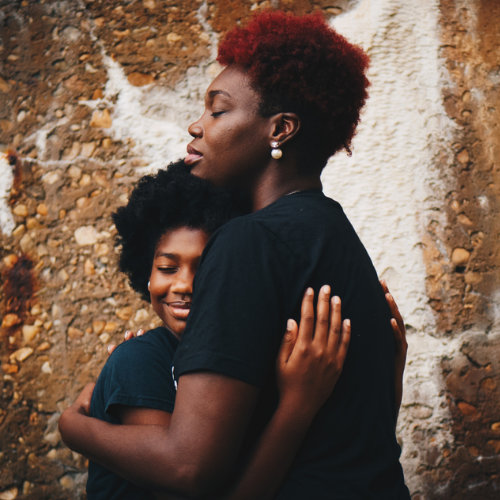
For those of you visiting me for the first time, welcome! I’m Deborah Ann Davis, award-winning author and Parenting Coach.
The following blog post is an excerpt from my upcoming parenting course. It’s going to be so powerful, and will provide tons of techniques, conversation starters, solutions, and strategies that you’ll be able to use right away. Check out the first excerpt from the course here: https://DeborahAnnDavis.com/positive-relationship-characteristics/
The course will be out sometime in September. I can hardly wait!
——————————————–
Ways to Regain Parental Power
Let’s face it, even with the best-laid plans in place, there are always going to be struggles, clashes and problems. With this in mind, I’ve identified 6 common behavioral patterns that tend to reduce your parental control, plus solutions to help you get back on track.
Here are the scenarios I’m going to cover:
Scenario #1: Regaining Parental Power Lost Through Revisiting Decisions
Scenario #2: Regaining Parental Power Lost Through Trying To Be Your Child’s Best Friend
Scenario #3: Regaining Parental Power Lost Through Collaboration Without Parameters
Scenario #4: Regaining Parental Power Lost Through Power Struggles
Scenario #5: Regaining Parental Power ThroughKeeping Your Cool
Scenario #6: Regaining Parental Power Lost Through Conversation Landmines
SCENARIO #1: LOSING PARENTAL POWER THROUGH REVISITING DECISIONS
Your kids will want to discuss/debate/argue about a decision that doesn’t suit their desires. (My parents called that “nagging.”) If you change your mind the fourth time they bring it up, you are teaching them to bring it up four times so they can get their way. If you hold out until their fifth attempt, then five tries becomes their personal sweet spot.
REGAINING PARENTAL POWER LOST THROUGH REVISITING DECISIONS
Solution #1: Establish a family policy BEFORE a conversation about wanting change comes up.
That policy?
“As far as changing household rules is concerned, no immediate decisions will be made. ALL follow-up discussions will be held in 24 hours. That will give everyone time to calm down and rethink their positions.”
Remember: Research is your friend! Encourage your kids to research their side of the conflict, and bring you RELIABLE evidence to support their position for the next discussion. (That means no Wikipedia.)
However, just because the conversation will be resumed does NOT mean the decision will be changed. It merely allows your debating darlings to have another conversation about it.
Listen to their side, and check their sources. Then share your side and your sources. With all the research being shared, you can invite them to have a discussion. Just make sure you remind them that ALL follow-up discussions will be held in 24 hours.
Don’t worry. They’ll get used to this policy if you’re consistent.
What if you’ve told your daughter she can’t attend an unsupervised party, and her anger escalates as you stand firm.
Solution #2:
Say This: “Like I told you before this discussion began, we can revisit this tomorrow if you still want to discuss future parties, but I’ve made my decision about this one. I love you too much to let your anger change my mind. However, you are welcome to do some research and come up with reliable sources that support your point of view. You can share what you find with me tomorrow. I love you, and I hate seeing you upset.”
SCENARIO #2: LOSING PARENTAL POWER THROUGH TRYING TO BE YOUR CHILD’S BEST FRIEND
Adult and child roles get confused when disciplinary resolutions are based on not upsetting the child.
I get it. You’re exhausted because you have too much on your plate. When your Littles blow up, or your Middles throw you under the bus, or your Teens convince you you’re ruining their life…(Spoiler Alert – you’re not!)…who wouldn’t want a shortcut to a peaceful night?
But, bribing, cajoling, distracting, and caving in only serve to keep momentary peace. Plus, small children never learn how to handle “No” in a graceful and emotionally strong way – a very important skill for functioning well in school.
When the goal is to maintain peace, that path eventually backfires. All it does is teaches Littles that, in order to achieve their goal, they must first launch a tantrum.
Fast forward to Middles and Teens. When the parent doesn’t want to jeopardize their best-friend relationship with their kids, they don’t enforce deadlines and limits in order to stay on their good side. These folks make excuses for their kids’ rude behavior, blaming outside factors, which, of course, teaches their cherub to do the same.
Not only does this direction make it difficult for your kids to function out in the world, but it also doesn’t allow for a peer to fill the best friend role. Your children need to navigate life within their age group. Those lessons are important.
———————————
Did you learn something new? Obviously, there is more to this, but I’m saving it for the course.
I hope you enjoyed the second sneak peek into my upcoming parenting course. You can read the first sneak peek here: https://deborahanndavis.com/positive-relationship-characteristics/
As always, any and all feedback is welcome. I’d especially like to know what topics you’d like me to cover. We can figure it out together. Email me at info@DeborahAnnDavis.com
You got this!
Deborah



